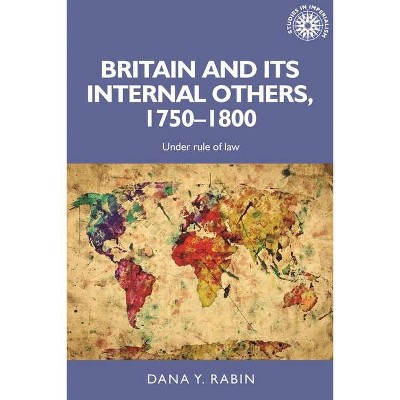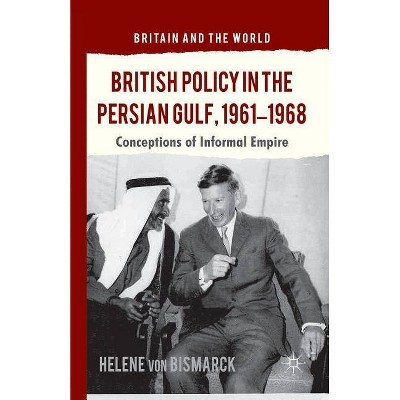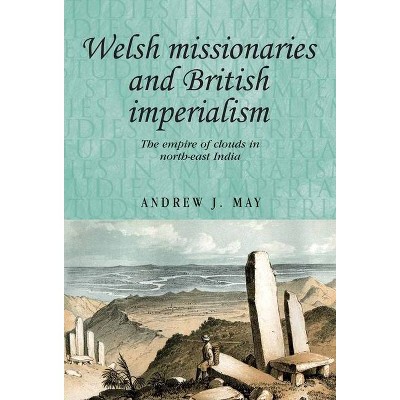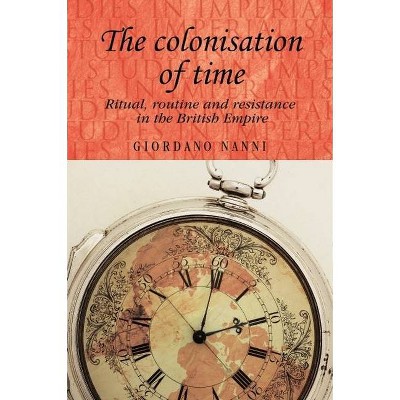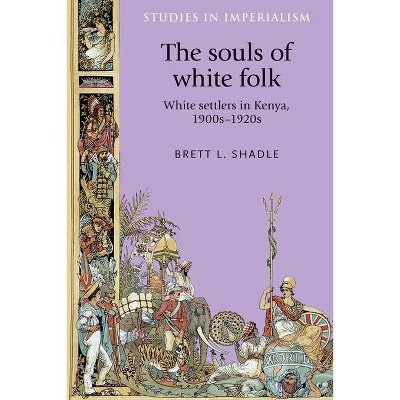Britain and the Formation of the Gulf States - (Studies in Imperialism) by Shohei Sato (Paperback)
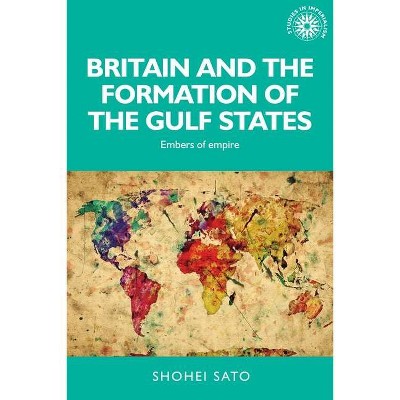
Similar Products
Products of same category from the store
AllProduct info
<p/><br></br><p><b> Book Synopsis </b></p></br></br><p>This book is about the end of the British Empire in the Middle East. It offers new insight into the relationship that was nurtured between Britain and the Gulf rulers at the height of the empire and how this has influenced the structure of international society today. <br /> <br /> Over the last four decades the Persian Gulf region has gone through oil shocks, wars and political changes but the basic entities of the southern Gulf States have largely remained in place. Historically, nine separate states had stood in parallel to each other under British influence. At various points, plans were discussed to amalgamate the nine into one, two, three or even four separate entities. The eventual emergence of the smaller but prosperous members such as Qatar, Bahrain and the United Arab Emirates was not at all evident until 1971. How did such a resilient system arise, given such seemingly contested societies?<br /> <br /> Drawing on extensive multi-archival research in the British, American and Gulf archives, Britain and the formation of the Gulf States considers the factors that drove the formation of these three new states we see today. It illuminates a series of negotiations between British diplomats and the Gulf rulers that inadvertently led these states to take their current shapes and addresses the crucial issue of self-determination versus 'better together'.<br /> <br /> This book will be of interest not only to students and scholars of the British Empire or the Middle East but also to those with a broader interest in the transformation of the modern world.</p><p/><br></br><p><b> From the Back Cover </b></p></br></br>This book is about the end of the British Empire in the Middle East. It offers new insight into the relationship that was nurtured between Britain and the Gulf rulers at the height of the empire and how this has influenced the structure of international society today. Over the last four decades the Persian Gulf region has gone through oil shocks, wars and political changes but the basic entities of the southern Gulf States have largely remained in place. Historically, nine separate states had stood in parallel to each other under British influence. At various points, plans were discussed to amalgamate the nine into one, two, three or even four separate entities. The eventual emergence of the smaller but prosperous members such as Qatar, Bahrain and the United Arab Emirates was not at all evident until 1971. How did such a resilient system arise, given such seemingly contested societies? Drawing on extensive multi-archival research in the British, American and Gulf archives, Britain and the formation of the Gulf States considers the factors that drove the formation of these three new states we see today. It illuminates a series of negotiations between British diplomats and the Gulf rulers that inadvertently led these states to take their current shapes and addresses the crucial issue of self-determination versus 'better together'. This book will be of interest not only to students and scholars of the British Empire or the Middle East but also to those with a broader interest in the transformation of the modern world.<p/><br></br><p><b> Review Quotes </b></p></br></br><br>'Sato has written an important book that is readily accessible to non-specialists and the broader public and deserves a wide readership among the policy-making community, both in Britain and in the Gulf. At a time when the phrase 'east of Suez' has re-entered the British government lexicography and Britain has returned to permanent military bases in the Gulf for the first time since 1971, Sato's reassessment of Britain's regional withdrawal holds particular resonance.'<br><p/><br></br><p><b> About the Author </b></p></br></br><br>Shohei Sato is Associate Professor in International History at Kanazawa University, Japan<br>
Price History
Price Archive shows prices from various stores, lets you see history and find the cheapest. There is no actual sale on the website. For all support, inquiry and suggestion messages communication@pricearchive.us
